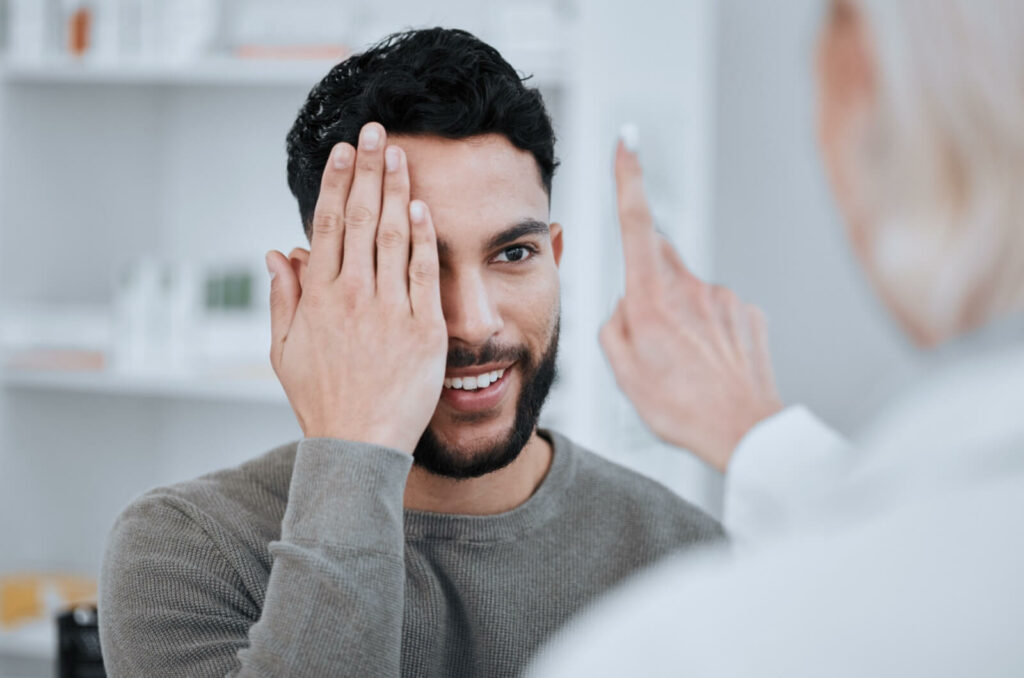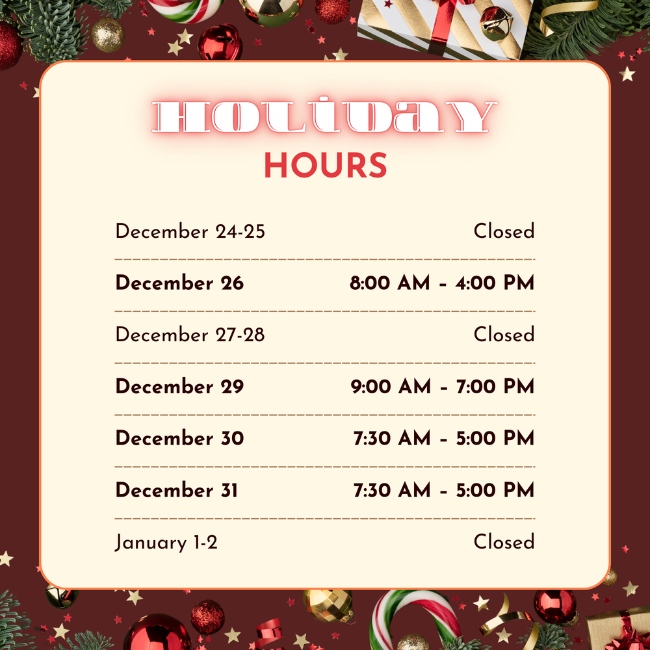Getting an eye exam can feel like a big task, especially if you’re juggling busy schedules or bringing in a young child. Fortunately, a comprehensive eye exam typically only takes thirty minutes to an hour—though more time can be spent if you have particular needs to be tested or treated.
This time is very well spent, though, as eye exams can help detect issues with your vision before you’ve even noticed a problem. A friendly and trustworthy optometrist can make the time fly by.
How Long Does an Eye Exam Take?
On average, a comprehensive eye exam takes about 30 minutes to an hour. However, the total time can vary depending on several factors, such as your needs, the tests required, and your eye doctor’s approach. Some clinics may have streamlined processes that speed things up, while others might take more time to ensure every detail is thoroughly checked.
While 30 minutes might seem like a lot, consider it a worthwhile investment in your eye health. Regular eye exams can detect eye issues early, prevent further complications, and help maintain good vision.
If you’re pressed for time, try scheduling your appointment during quieter periods, like mid-morning or early afternoon. Many eye care professionals offer flexible scheduling to accommodate busy lifestyles, making it easier to prioritize your eye health.
What Happens During a Comprehensive Eye Exam?
A comprehensive eye exam is more than just reading letters off a chart. It’s a thorough evaluation of your vision and eye health, including multiple tests to assess different aspects of your eyes.
Medical History & Pre-Exam Tests
Your eye doctor will start by reviewing your medical history and any vision problems you may have. They may ask about your general health, medications, and family history of eye diseases. This information helps tailor the exam to your specific needs.
Pre-exam tests like autorefractors and tonometry might be performed to measure your eye’s focusing ability and intraocular pressure. These quick tests provide essential baseline information for your eye doctor.
Visual Acuity & Refraction Tests
Next, you’ll undergo a visual acuity test, which measures how well you see at different distances. This is the familiar eye chart test where you read letters of varying sizes.
Refraction tests determine your exact prescription for glasses or contact lenses. Using a phoropter, your eye doctor will show you a series of lens choices and ask which ones make the letters on the chart appear clearer.
Eye Health Evaluation
A comprehensive eye exam also includes a detailed inspection of your eye health. Your eye doctor will use a slit lamp to examine the structures of your eyes, such as the cornea, iris, and lens. This will help identify any abnormalities or signs of disease.
Your eye doctor may also dilate your pupils using special eye drops. This allows a better view of the back of your eye, including the retina and optic nerve. While dilation can cause temporary light sensitivity and blurred vision, it’s crucial for detecting serious conditions like glaucoma and macular degeneration.
Why Are Comprehensive Eye Exams Important?

Comprehensive eye exams play a vital role in maintaining overall health. They can detect eye diseases early, thereby preventing vision loss and other complications. Many eye conditions, like glaucoma and diabetic retinopathy, show no symptoms in their early stages but can be detected through routine exams.
Eye exams can also reveal signs of systemic health issues, such as diabetes and high blood pressure. Your eye doctor might notice changes in your retinal blood vessels that indicate these conditions, prompting you to seek further medical evaluation.
How Frequently Should I Have an Eye Exam?
The frequency of eye exams depends on several factors, including age, health, and risk factors.
The American Optometric Association recommends comprehensive eye exams for children at six months, three years, and before starting school. After that, school-aged children and teenagers should have exams every two years if no vision correction is needed. Regular eye exams are crucial for children to detect vision problems affecting learning and development.
Adults aged 18 to 60 should have an eye exam every two years. If you wear glasses or contact lenses, yearly exams are recommended to ensure your prescription is up-to-date.
Seniors over 60 should have annual eye exams, as age increases the risk of eye diseases like cataracts, glaucoma, and macular degeneration. Regular exams can help manage these conditions effectively.
Reasons You May Need More Frequent Eye Exams
Certain risk factors and health conditions necessitate more frequent eye exams. Understanding these factors can help you stay proactive about your eye health.
- Family History of eye diseases. If you have a family history of eye diseases like glaucoma or macular degeneration, your eye doctor may recommend more frequent exams. Genetic predispositions can increase your risk, making regular monitoring essential for early detection and treatment.
- Chronic Health Conditions. Chronic health conditions such as diabetes and hypertension can affect your vision and eye health. Diabetic retinopathy, for example, is a common complication of diabetes that can lead to vision loss if not managed properly. Regular eye exams allow for timely intervention and management of these conditions.
- Occupational Hazards. Certain occupations expose individuals to higher risks of eye injuries or strain. If your job involves prolonged screen time, exposure to chemicals, or hazardous environments, more frequent eye exams can help prevent and address potential issues.
- Contact Lens Wearers. If you wear contact lenses, yearly exams are recommended to ensure proper fit, comfort, and eye health. Your eye doctor will check for any signs of irritation or infection and update your prescription as needed.
Regular eye exams are crucial for maintaining optimal eye health and overall well-being. Understanding the process and importance of comprehensive eye exams, you can proactively protect your vision and detect potential issues early.
Verona Vision Care aims to make every patient who walks through our door feel comfortable and educated during a comprehensive eye exam. Contact us today to see how we can change how you see eye exams.




